Are you sure you want to perform this action?
-
Brands
-
 4+ Nutrition
4+ Nutrition
-
 6Pak Nutrition
6Pak Nutrition
-
 7Nutrition
7Nutrition
-
 A-Z Medica
A-Z Medica
-
 ActiHealth
ActiHealth
-
 Activlab
Activlab
-
 Aliness
Aliness
-
 AllNutrition
AllNutrition
-
 Amix
Amix
-
 Applied Nutrition
Applied Nutrition
-
 Aura Herbals
Aura Herbals
-
 BSN
BSN
-
 Barebells
Barebells
-
 BetterYou
BetterYou
-
 Bio-Kult
Bio-Kult
-
 Biofarmacija
Biofarmacija
-
 Biotech Usa
Biotech Usa
-
 Body Attack
Body Attack
-
 Brain Gains
Brain Gains
-
 Candle Brothers
Candle Brothers
-
 Candle-Lite
Candle-Lite
-
 Candleberry
Candleberry
-
 Carlson Labs
Carlson Labs
-
 Cellucor
Cellucor
-
 Child Life Nutrition
Child Life Nutrition
-
 Cobra Labs
Cobra Labs
-
 Colonial-Candle®
Colonial-Candle®
-
 Controlled Labs
Controlled Labs
-
 Cure Support
Cure Support
-
 Doctor's Best
Doctor's Best
-
 Dorian Yates
Dorian Yates
-
 Double Wood Supplements
Double Wood Supplements
-
 Dr. Mercola
Dr. Mercola
-
 Dymatize
Dymatize
-
 EkaMedica
EkaMedica
-
 EkoToTu
EkoToTu
-
 Enzymedica
Enzymedica
-
 Essence Nutrition
Essence Nutrition
-
 Essensey
Essensey
-
 Evlution Nutrition
Evlution Nutrition
-
 Evolite Nutrition
Evolite Nutrition
-
 Extrifit
Extrifit
-
 FA Nutrition
FA Nutrition
-
 Fit & Lean
Fit & Lean
-
 FitMax
FitMax
-
 Floradix
Floradix
-
 ForMeds
ForMeds
-
 Forest Vitamin
Forest Vitamin
-
 GAL
GAL
-
 Garden of Life
Garden of Life
-
 Gaspari Nutrition
Gaspari Nutrition
-
 Genetic Nutrition
Genetic Nutrition
-
 Ghost
Ghost
-
 Go On Nutrition
Go On Nutrition
-
 Goli Nutrition
Goli Nutrition
-
 Gymax
Gymax
-
 HERB
HERB
-
 Haribo
Haribo
-
 Haya Labs
Haya Labs
-
 Health Thru Nutrition
Health Thru Nutrition
-
 Healthy Origins
Healthy Origins
-
 Hepatica
Hepatica
-
 Himalaya
Himalaya
-
 Hiro.lab
Hiro.lab
-
 Holland & Barrett
Holland & Barrett
-
 IHS Technology
IHS Technology
-
 Iconfit
Iconfit
-
 Immortal Nutrition
Immortal Nutrition
-
 Intenson
Intenson
-
 Iridium Labs
Iridium Labs
-
 Isostar
Isostar
-
 JNX Sports
JNX Sports
-
 Jarrow Formulas
Jarrow Formulas
-
 Java Water
Java Water
- Javia Med
-
 KIKI Health
KIKI Health
-
 Kenay AG
Kenay AG
-
 Kevin Levrone
Kevin Levrone
-
 LABS212
LABS212
-
 Lab One
Lab One
-
 Life Extension
Life Extension
-
 MHP
MHP
-
 MST Nutrition
MST Nutrition
-
 Manly Indulgence
Manly Indulgence
-
 Mars
Mars
-
 Medica Herbs
Medica Herbs
-
 Medverita
Medverita
-
 Megabol
Megabol
-
 Metolius
Metolius
-
 Mg12
Mg12
-
 MuscleMeds
MuscleMeds
-
 MuscleTech
MuscleTech
-
 Mutant
Mutant
-
 MyVita
MyVita
-
 Myprotein
Myprotein
-
 Natrol
Natrol
-
 Natural Factors
Natural Factors
-
 Nature's Answer
Nature's Answer
-
 Nature's Way
Nature's Way
-
NaturesPlus
-
 Naughty Boy
Naughty Boy
-
 NeoCell
NeoCell
-
 Nordic Naturals
Nordic Naturals
-
 Norsan
Norsan
-
 Now Foods
Now Foods
-
 Nutrend
Nutrend
-
 Nutrex
Nutrex
-
 Nutrex Hawaii
Nutrex Hawaii
-
 NutriCology
NutriCology
-
 Nutricost
Nutricost
-
 Nutriversum
Nutriversum
-
 Oleofarm
Oleofarm
-
 Olimp
Olimp
-
 Oly
Oly
-
 Optimum Nutrition
Optimum Nutrition
-
 Orthomol
Orthomol
-
 Osavi
Osavi
-
 OstroVit
OstroVit
-
 Palacio
Palacio
-
 Panaseus
Panaseus
-
 Parfums de Marly
Parfums de Marly
-
 Pharma Nord
Pharma Nord
-
 PharmaFreak
PharmaFreak
-
 PharmoVit
PharmoVit
-
 Planet Ayurveda
Planet Ayurveda
-
 Power System
Power System
-
 Progress Labs
Progress Labs
-
 Puritan's Pride
Puritan's Pride
-
 Purple River
Purple River
-
 QNT
QNT
-
 Real Pharm
Real Pharm
-
 Redcon1
Redcon1
-
 Reflex Nutrition
Reflex Nutrition
-
 Remedy Relief
Remedy Relief
-
 Revive
Revive
-
 Rich Piana 5% Nutrition
Rich Piana 5% Nutrition
-
 Ronnie Coleman
Ronnie Coleman
-
 Rule 1
Rule 1
-
 SAN
SAN
-
 Sante
Sante
-
 Scitec Nutrition
Scitec Nutrition
-
 Scivation
Scivation
-
 SiS
SiS
-
 Skill Nutrition
Skill Nutrition
-
 Skoczylas
Skoczylas
-
 Smart Shake
Smart Shake
-
 Solaray
Solaray
-
 Solgar
Solgar
-
 Source Naturals
Source Naturals
-
 Swanson
Swanson
-
 Syntrax
Syntrax
-
 Targroch
Targroch
-
 Tested Nutrition
Tested Nutrition
-
 Thorne Research
Thorne Research
-
 Tisserand Aromatherapy
Tisserand Aromatherapy
-
 Trace Minerals
Trace Minerals
-
 Trec Nutrition
Trec Nutrition
-
 UNS
UNS
-
 USP Labs
USP Labs
-
 UltraVit
UltraVit
-
 Universal Nutrition
Universal Nutrition
-
 VP laboratory
VP laboratory
-
 VPLab
VPLab
-
 Vital Proteins
Vital Proteins
-
 Vitalmax
Vitalmax
-
 Vitaworld
Vitaworld
-
 WISH Pharmaceutical
WISH Pharmaceutical
-
 Warrior
Warrior
-
 Warrior Labs
Warrior Labs
-
 Weider
Weider
-
 Wiseshrooms
Wiseshrooms
-
 Woodbridge
Woodbridge
-
 Yango
Yango
-
 Zein Pharma
Zein Pharma
-
-
Vitamins & Herbs
- Antioxidants
- Bee Products
- Calmness and Self-Control
- Cardiovascular Support
- Cholesterol Level Support
- Detox & Liver Health
- Digestion
- Eye Health
- Fish Oil, Flax Oil & Omegas
- GABA
- Glucose Level Support
- Greens & Superfoods
- Herbs & Phytotherapy
- Joint Support
- Kids Health
- Memory & Cognitive Support
- Men's Health
- Minerals
- Mushroom Supplements
- Pet's Health
- Sleep Support
- Urinary Tract Health
- Vitamins A-z
- Women's Health
- Sports Nutrition
- Scented Candles
- Body & Beauty
- Sports apparel and Accessories
- On Sale
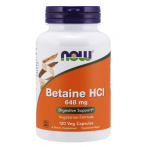 Now Foods Betaine HCl 648 mg
Now Foods Betaine HCl 648 mg
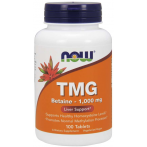 Now Foods TMG Betaine 1000 mg Amino Acids
Now Foods TMG Betaine 1000 mg Amino Acids
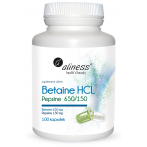 Aliness Betaine HCL Pepsin 650/150 mg
Aliness Betaine HCL Pepsin 650/150 mg
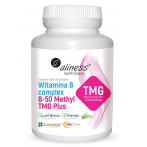 Aliness Vitamin B Complex B-50 Methyl TMG plus
Aliness Vitamin B Complex B-50 Methyl TMG plus
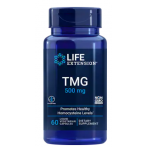 Life Extension Trimethylglycine (TMG) 500 mg
Life Extension Trimethylglycine (TMG) 500 mg
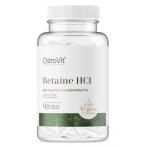 OstroVit Betaine HCl 650 mg
OstroVit Betaine HCl 650 mg
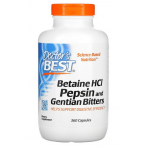 Doctor's Best Betaine HCL Pepsin and Gentian Bitters
Doctor's Best Betaine HCL Pepsin and Gentian Bitters
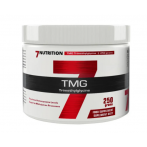 7Nutrition TMG Powder Amino Acids
7Nutrition TMG Powder Amino Acids
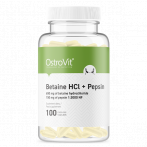 OstroVit Betaine HCl + Pepsin 650 mg/150 mg
OstroVit Betaine HCl + Pepsin 650 mg/150 mg
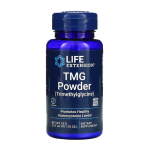 Life Extension TMG Powder Amino Acids
Life Extension TMG Powder Amino Acids
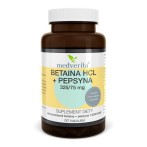 Medverita Betaine 650 mg + Pepsin 150 mg
Medverita Betaine 650 mg + Pepsin 150 mg
 Yango Betaine HCL + Pepsin
Yango Betaine HCL + Pepsin
 Enzymedica Betaine HCl 600 mg
Enzymedica Betaine HCl 600 mg
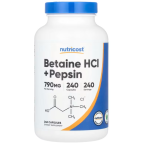 Nutricost Betaine HCl + Pepsin
Nutricost Betaine HCl + Pepsin
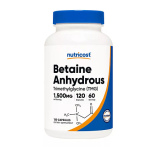 Nutricost Betaine Anhydrous (TMG) Amino Acids
Nutricost Betaine Anhydrous (TMG) Amino Acids
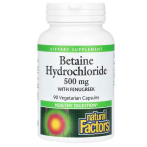 Natural Factors Betaine Hydrochloride with Fenugreek 500 mg
Natural Factors Betaine Hydrochloride with Fenugreek 500 mg
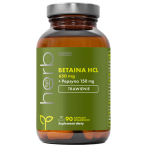 HERB Betaine HCL 650 mg + Pepsin 150 mg
HERB Betaine HCL 650 mg + Pepsin 150 mg
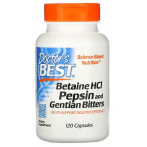 Doctor's Best Betaine HCL Pepsin & Gentian Bitters
Doctor's Best Betaine HCL Pepsin & Gentian Bitters
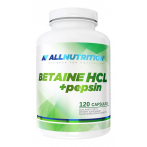 AllNutrition Betaine HCL + Pepsin
AllNutrition Betaine HCL + Pepsin
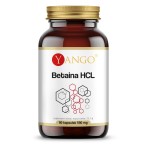 Yango Betaine HCL
Yango Betaine HCL
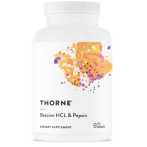 Thorne Research Betaine HCL & Pepsin
Thorne Research Betaine HCL & Pepsin
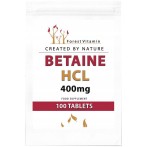 Forest Vitamin Betaine HCL 400 mg
Forest Vitamin Betaine HCL 400 mg
 Enzymedica Betaine HCl 600 mg
Enzymedica Betaine HCl 600 mg
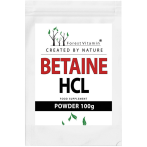 Forest Vitamin Betaine HCL
Forest Vitamin Betaine HCL